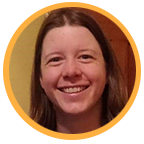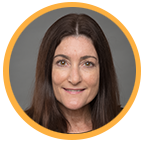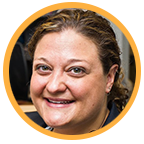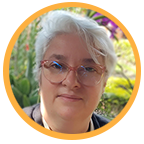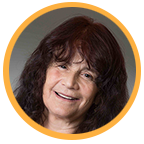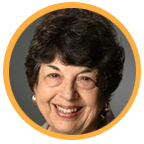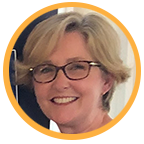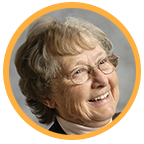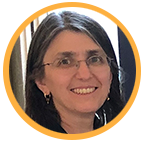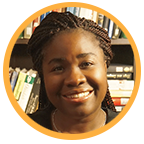Speakers
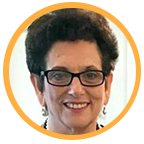
Susan Baum
2e Center for Research and Professional Development
Bridges Academy
Shannon Anderson, M.Ed., taught for 25 years, from first grade through college. Shannon holds a license to teach gifted and talented students from Ball State University and was the GT coordinator for her school corporation for 12 years. She was also named one of the 10 teachers who "awed and inspired" the Today Show in 2019. Shannon is an award-winning children's book author and served as the Regional Advisor for the Indiana Society of Children's Book Writers and Illustrators. For many years, she also served on the Board of Directors for the Indiana State Literacy Association. You can learn more about her at https://www.shannonisteaching.com.
Susan Baum, Ph.D., is the Director of the 2e Center for Research and Professional Development at Bridges Academy, a school for twice exceptional students, and Provost of the Bridges Graduate School of Cognitive Diversity in Education. She is the 2010 recipient of the Life Time Achievement Award granted by the Weinfeld Group, for her contributions to the field of the education of twice exceptional learners; the 2011 recipient of the Connecticut Association for Gifted's Friend of the Gifted Award; the 2015 Distinguished Professional Alumni Award from the Neag School of Education for her work with twice exceptional students; and the Lifetime Achievement Award from AEGUS and the 2e Newsletter in 2017. Professor Emeritus from The College of New Rochelle, Susan is widely published in the areas of differentiated instruction, twice exceptional students, primary-aged gifted students, and social and emotional factors affecting gifted students. Susan served on the Board of Directors of the National Association for Gifted Students and is the past president and founder of the Association for the Education of Gifted Underachieving Students (AEGUS). Susan serves on the advisory boards of 2e Newsletter and Smart Kids with Learning Disabilities.
Nicole Belden is the Gifted Education Specialist for the Buckeye Elementary School District in Buckeye, Arizona. With more than 20 years of experience in education, Nicole has worked in urban, suburban, and rural communities throughout her time as a gifted educator in grades ranging from kindergarten to eighth. For the past two years she has presented at the National Association for Gifted Children annual conventions and continues to write professional development to deliver to her gifted cluster teachers in her district. This year Nicole's focus was on teacher coaching as well as the implementing Genius Hour for both the district's gifted pull-out program and its middle grades gifted magnet program.
Carla Brigandi is an Associate Professor at West Virginia University. She earned her Ph.D. in Educational Psychology with a focus on Gifted Education and Talent Development from the University of Connecticut on 2015. Prior to that, Carla was a classroom teacher for 15 years. She taught mathematics and gifted education, and coached Mathcounts, American Mathematics Competitions (AMC) 10 & 12, and Community Problem Solving International (CmPS). She has been recognized for outstanding teaching at both the secondary and post-secondary levels. Carla is an active member of the National Association for Gifted Children, the American Educational Research Association, and the West Virginia Association for the Gifted and Talented. She currently works as the project director for Appalachian Coders, a federally funded research initiative to increase identification of and support to students with high academic ability who live in rural, low education, and low socio-economic communities. Carla presents nationally and internationally on topics related to gifted education and the Schoolwide Enrichment Model. She has been teaching at Confratute since 2011 and previously served as Confratute Coordinator.
Marcelo Dos Santos received a BFA from the Ringling College of Art and Design and an MFA from the New York Academy of Art. He is a Visual Artist and a teacher of the Visual Arts in Elizabeth, New Jersey. He has taught in Elizabeth’s urban school district since 2005 where for the last 13 years he has worked at Terence C. Reilly, a gifted and talented school that focuses on Academics, Athletics, Visual and Performing Arts. He has taught electives (RLS) based on the Renzulli Learning System, in Art History, 3-D Design, Mosaic Design, Investing, STEM and Maker Space, along with teaching 2nd-8th grade Visual Arts.
Rebecca D. Eckert is an Associate Clinical Professor in Teacher Education at the Neag School of Education at the University of Connecticut, where she works with pre-service teachers as they navigate the joys and challenges of their first classroom experiences—made especially challenging in the past two years of pandemic learning. In her former role as the Gifted Resource Specialist for the National Association for Gifted Children (NAGC), Becky helped redesign the NAGC website and develop practical resources for educators and advocates of gifted students. Becky co-edited the 2nd edition of Designing Services and Programs for High-Ability Learners with Jennifer Robins. Her previous work at The National Research Center on the Gifted and Talented included participation in Javits research at both the elementary and secondary levels. Her research interests include talented readers, arts in the schools, classroom impact of co-teaching strategies, and public policy and gifted education. She is a former middle school teacher with experience in geography, history, and theater arts.
Janine M. Firmender is a professor in the Teacher Education Department at Saint Joseph's University in Philadelphia, Pennsylvania, where she teaches courses in the areas of Early Childhood/Elementary (grades pre-k – 4) education and elementary mathematics education. She is also pursuing research interests in the areas of engaging students in mathematical writing and meeting the needs of mathematically talented students. In 2015 she co-led the Elementary Mathematical Writing Task Force, funded by a National Science Foundation conference grant. Dr. Firmender earned her Ph.D. in Educational Psychology with a concentration in Gifted Education from the Neag School of Education at the University of Connecticut, with a related area of study in curriculum and instruction for elementary mathematics education. Dr. Firmender is currently the columnist for the iMathination column in Teaching for High Potential and is an active member of the National Council of Teachers of Mathematics and the National Association for Gifted Children (NAGC). She also is the chair-elect of the STEM Network of NAGC, served on the Advisory Board for Teaching for High Potential, and is the past chair of the NAGC Computers and Technology Network.
Liz Fogarty obtained her Ph.D. in Educational Psychology with an emphasis in Gifted Education from the University of Connecticut in 2016. She teaches literacy education at the University of St. Thomas in Minneapolis, Minnesota. Her research focuses on talented readers, co-teaching, and helping teachers develop effective differentiation methods. She lives in Minnesota with her husband and two children.
Erik M. Francis, an international author and presenter with over 25 years of experience working in education. He is the author of Now THAT'S a Good Question! How to Promote Cognitive Rigor Through Classroom Questioning published by ASCD. His book on teaching and learning for depth of knowledge will be published by Solution Tree International in 2021. He is also ranked consistently as one of the World's Top 30 Education Professionals by the research organization Global Gurus. Erik received his Master's in Education Leadership from Northern Arizona University and Master's of Science in Television/Radio/and Film Production and Management from the S.I. Newhouse School of Public Communications at Syracuse University. He also holds a Bachelor’s of Arts in Rhetoric and Communication and English from the University at Albany.
María Caridad García-Cepero is currently a consultant in Latin America in the fields of students' and teachers' talent development. She has 20 years of experience in professional development. In 2007 she obtained her Ph.D. in Gifted and talent development at UConn. In 2015 and 2017 she led and co-authored the educational policy guidance documents for talent development for Colombia (https://www.academia.edu/20338397/Documento_de_orientaciones_técnicas_administrativas_y_pedagógicas_para_la_atención_educativa_a_estudiantes_con_capacidades_y_o_talentos_excepcionales_en_el_marco_de_la_educación_inclusiva). In recent years, she has begun a process of exploring her personal talent in the visual arts. She believes that the first step in transforming schools into spaces for talent development is to cultivate the personal talent of educators.
María Caridad García-Cepero es actualmente consultora en América Latina en las áreas de desarrollo del talento de estudiantes y docentes. Tiene 20 años de experiencia en desarrollo profesional docente. En 2007 obtuvo su doctorado en superdotados y desarrollo de talento en UConn. En 2015 y 2017 lideró y fue coautora de los documentos guía de política educativa para el desarrollo del talento para Colombia. En los últimos años ha iniciado un proceso de exploración de su talento personal en las artes visuales. Ella cree que el primer paso para transformar las escuelas en espacios para el desarrollo del talento es cultivar el talento personal de los educadores.
Dr. Nicholas Gelbar serves as a Senior Investigator on the project. Dr. Gelbar is an Associate Research Professor at the University of Connecticut in the Department of Educational Psychology. Previously, he was an assistant professor at the University of Connecticut Health Center (School of Medicine) and the research director for the UConn University Center for Excellence in Developmental Disabilities. He earned his Ph.D. in Educational Psychology (with concentrations in School Psychology, Special Education, and Gifted/Talented Education) from the University of Connecticut in 2013. He is a licensed psychologist and has served as the internal evaluator for several OSEP-funded projects including the Early Childhood Personnel Center. His post-doctoral research has focused on the experiences of college students with disabilities, especially those with ASD, and has authored two seminal publications in this area (Gelbar, Smith, & Reichow, 2014; Gelbar et al., 2015). In addition, he edited a book for Oxford University Press entitled Adolescents with Autism Spectrum Disorder: A Clinical Handbook. Dr. Gelbar has authored 31 peer-reviewed articles and six book chapters.
Marcia Gentry (Ph.D., UConn), Professor of Educational Studies, directs the Gifted Education Resource Institute at Purdue University. She has received multiple grants worth several million dollars in support of her work with programming practices and underrepresented populations in gifted education. Dr. Gentry's research interests include student attitudes toward school and the connection of these attitudes toward learning and motivation; the use of cluster-grouping and differentiation to meet the needs of students with gifts and talents while helping all students achieve at high levels; and the development and recognition of talent among underserved populations, including children who live in poverty and students with diverse cultural backgrounds including Native American youth. She enjoys spending time with her daughter (who attends Purdue) and with friends; running and staying fit; gardening; hanging out in the horse barn; collecting contemporary Navajo weavings; relaxing at her cabin on Lake Superior; and working with her doctoral students. Marcia was the 2014 recipient of the prestigious Distinguished Scholar Award from the National Association for Gifted Children—and at the same 2014 meeting, one of her graduates received the Early Scholar Award, and one of her doctoral students received a Doctoral Student Award!
Dr. Jackie Gerstein teaches gifted education for Santa Fe Public Schools; and graduate-level online courses for Walden and Antioch Universities. She is the author of the book Learning in the Making: How to Plan, Execute, and Assess Powerful Makerspace Lessons, published by ASCD. Jackie believes that a responsibility of the 21st century educator is to share resources, ideas, and instructional strategies with other educators. As such, she blogs at https://usergeneratededucation.wordpress.com and Tweets from @jackiegerstein

Thomas Hébert
Department of Educational Studies
University of South Carolina
John Gleason is a 20-year veteran in elementary education teaching first and second grades as a classroom teacher, a gifted and talented "cluster" model classroom, and a supervisor of an after school basic skills program. Three years ago, he made the transition from classroom to elementary school media specialist/librarian in Monroe Twp., NJ and continues to maintain a collaborative relationship with his gifted and talented colleagues to create and curate special projects like a student led coffee shop for staff as well as a weekly school wide news program. Follow on Twitter: @UndergroundLib2
Thomas P. Hébert, Ph.D., is a professor of gifted and talented education at the University of South Carolina. Previous to his 28 years in higher education, training graduate students and educators in gifted education, he had more than a decade of K-12 classroom experience with gifted students. Before arriving at South Carolina, he was on the faculty at the University of Alabama and the University of Georgia, conducted research for the National Research Center on the Gifted and Talented (NRC/GT), and served on the Board of Directors of the National Association for Gifted Children (NAGC). The College of Education at Georgia awarded him a faculty research leave during which he traveled throughout the country to interview high-achieving men who had overcome serious adversity. Talented Young Men Overcoming Tough Times: An Exploration of Resilience (Prufrock Press, 2018) was the result. His latest book, Understanding the Social and Emotional Lives of Gifted Students (2nd ed., Prufrock Press, 2020) appeared in bookstores this year.

Gail N. Herman
Professional Storyteller, College Educator, and Teaching Artist
Gail N. Herman, Ph.D. is a professional storyteller, college educator, and teaching artist in schools. As a former teacher of grades 1 and 2 and a coordinator of a K-8 enrichment SEM program, Gail's goal is to infuse the storytelling arts into the Core with creative movement, mime, visual arts, and drama. She received her doctorate at UConn in Curriculum & Instruction: Talent Development, and also has degrees in speech & theater, elementary education, and aesthetics in education. She taught education, early childhood education, gifted education, and storytelling for Lesley University, Quinabaug Valley Community College, and Garrett College, among others. She served on the Boards of the National Storytelling Network and the Association for the Education of Gifted Underachieving Students (AEGUS). She presents "Hearing Between the Lines" using folk instruments to awaken musical intelligence and in-depth meaning in folk literature. She co-authored Kinetic Kaleidoscope: Exploring Movement & Energy in Visual Arts and Tales of Mischievous Martha, as well as stories and articles in education. She directed "Coal Talk," an oral history project in Mountain Maryland, and she wrote Sylvester and the Grumps about a grumpy monkey and bullying.
Nancy N. Heilbronner, Ph.D., is an Associate Professor of Education at Mercy College. Prior to earning her doctorate at the University of Connecticut, she was a classroom teacher of gifted students for 10 years. At her current institution, she has served as the Associate Dean and Interim Dean of the School of Education, as well as Interim Associate Provost. Dr. Heilbronner is the author/co-author of four books and many articles the field of gifted and science education. Her publications for teachers and parents have been honored with the Parent's Choice and Texas Legacy Awards. She lives in upstate New York with her husband and Cavalier-King Charles Spaniel – sometimes venturing out to visit her six grandchildren or to go on a hike.

Brian Housand
Academically or Intellectually Gifted Program
University of North Carolina Wilmington
Dr. Brian Housand, is the coordinator of the Academically or Intellectually Gifted Program at University of North Carolina Wilmington and creator of Gifted360.com. Dr. Housand earned a Ph.D. in educational psychology at the University of Connecticut with an emphasis in both gifted education and instructional technology. He served two terms on the National Association for Gifted Children's Board of Directors as a Member-At-Large. Along with his wife Dr. Angela Housand and Dr. Joe Renzulli, he co-authored Using the Schoolwide Enrichment Model with Technology. He is also the author of Fighting Fake News! Teaching Critical Thinking and Media Literacy in a Digital Age. Brian has worked in education as a classroom teacher, a teacher of the gifted, and a university professor for over twenty years. As a speaker and consultant, he has presented in 40 states, Canada, Australia, South Korea, Kuwait, and Chilé. Brian is a lover of technology, Star Wars, all things Disney, video games, and fonts. He proudly identifies himself as a geek. You can learn more on his website at brianhousand.com and by following him on Twitter @brianhousand.
Sandra Kaplan is currently a Clinical Education Professor at the University of Southern California. She has been a teacher and administrator of gifted programs. Her interests are in defining and designing differentiated curriculum and instruction for gifted learners. Sandra has been an active participant in the California Association for the Gifted and the National Association for Gifted Children as a board member and president of these organizations. She has written books and articles in the area of curriculum development for gifted students generally and for gifted students who represent both linguistic and economic diversity.

Benjamin Lacina
Talent Development and Acceleration Services
Saint Paul Public Schools
Benjamin Lacina serves as the Supervisor for Talent Development and Acceleration Services in Saint Paul Public Schools in Minnesota. With more than 20 years in public education, Ben's work has centered around both arts education and gifted and talented/talent development in both urban and suburban school districts. He began his career as an elementary as an Music Specialist for Highwood Hills Elementary School (Saint Paul), where he worked in close collaboration with the Schoolwide Enrichment Model Specialist and with students to create more than 15 original musicals. Ben has degrees in Vocal Music Education, Gifted Education & Talent Development, and Educational Leadership.
Regina Lee has been the Gifted & Talented teacher for Vernon Public Schools for the last 11 Years and has been co-teaching the CT History Day program with co-teacher Cyndee McManaman for the last nine years. Regina has judged history day projects at regional, state, and national contests. She was Connecticut's 2019 History Day Teacher of the Year and is currently Vernon's 2021-22 Teacher of the Year and a State TOY finalist. Regina teaches at the middle and high school levels. She earned her B.A. in American and Ethnic Studies from Trinity College in Hartford, her M.A. in Reading and Language Arts from St. Joseph College, and her Sixth-Year Diploma in Educational Psychology with emphasis in Giftedness, Creativity, and Talent Development from UConn.

Catherine Little
Department of Educational Psychology
University of Connecticut
Dr. Jann Leppien is the Margo Long Endowed Chair in Gifted Education and Professor in the Graduate School of Education at Whitworth University located in Spokane, Washington. Whitworth's Center for Gifted Education supports and develops policies and practices that encourage the diverse expressions of gifts and talents in children and youth from all cultures, racial and ethnic backgrounds, and socioeconomic groups and offers educators a specialty endorsement and Master's degree in gifted education. She conducts professional staff training for educators in the areas of differentiated instruction, curriculum design and assessment for advanced students, thinking skills, and gifted program development, both nationally and internationally. She has served on the board of the National Association for Gifted Children and currently serves on the board of the Washington State Advisory Committee for Gifted Education, the 2E Center for Research and Professional Development, and NAGC's Leadership Development Committee. She is the coauthor of The Multiple Menu Model: A Practical Guide for Developing Differentiated Curriculum and The Parallel Curriculum: A Design to Develop High Potential and Challenge High-Ability Students, and she is the series editor for instructional units designed using the Parallel Curriculum Model (PCM).
Catherine Little is a Professor in Educational Psychology at the University of Connecticut. She teaches courses in gifted and talented education and in the undergraduate honors program. Her research interests include professional development, differentiation of curriculum and instruction for advanced learners, and classroom questioning practices. She currently works as the project director for Project SPARK and Project LIFT, both of which are federally-funded research initiatives focused on working with schools to recognize and respond to advanced academic potential in the early grades, particularly in students from underserved populations. She currently serves on the Board of Directors for the National Association for Gifted Children.
Dr. Joseph Madaus serves as a Co-Principal Investigator and Co-Project Director on the project. He is the Director of the Collaborative on Postsecondary Education and Disability and is a Professor in the Department of Educational Psychology in the Special Education program. He coordinates the annual Postsecondary Disability Training Institute (https://pti.education.uconn.edu), which provides intensive professional development to over 300 college disability service professionals from across the United States and Canada. He was the Principal Investigator or Co-Principal Investigator on grants through the Office for Postsecondary Education, Office for Special Education Programs, the Institute of Education Sciences, and the State of Connecticut. He currently serves on the editorial board of nine journals, including the Journal of Postsecondary Education and Disability, TEACHING Exceptional Children, and Career Development and Transition for Exceptional Individuals. He was the co-editor of Preparing Students with Disabilities for College: A Practical Guide for Transition, published in 2018.
Known simply as Ms. Math to children across the country, Dr. Rachel McAnallen has devoted her life to sharing the joy and beauty of mathematics with learners of all ages. A professional educator for more than 60 years, she travels the globe teaching her subject at every grade level. In addition to her experience in the classroom, Rachel has served as a department chair, a school board member, and a high school administrator. She claims the latter position is responsible for the majority of her grey hairs. She has a passion for teaching, reading fictional mystery novels, and mathematical modular origami, though not always in that order. Recently Rachel has co-authored with Carol Williams, children's math books and teaching manuals that accompany the books. A life-long learner, Rachel approaches the world around her with a boundless curiosity and a playful sense of humor that is reflected in her teaching style. She believes that mathematics is a language to be spoken, a music to be heard, an art to be seen, and a dance to be performed.
Cyndee McManaman earned her B.A. in psychology from the University of Colorado and her M.S. in Middle Level Education from Walden University. Over the past ten years she has increased her involvement with CT History Day, first as a judge then as a teacher. As the co-advisor of the History Day Club for Vernon Public Schools, she mentors students of all academic abilities in grades 6-12 participating in the History Day program at all levels of competition. Cyndee currently serves as the Mansfield/Storrs Regional Coordinator for Connecticut History Day, and works part time for Connecticut History Day as a contest assistant and educational consultant. She was Connecticut's 2016 History Day Teacher of the Year.
Seth Messier is the lead Gifted and Talented teacher in the Garden City School district on Long Island, New York. He has served 25 years in public school education as a classroom teacher across various grade levels. Under his leadership, his Gifted and Talented classes have won numerous national awards, including Math Olympiads (MOEMS), Toshiba Exploravisions, and The Stock Market Game. Seth presented his work on PBL at the 2019 NAGC Convention in Albuquerque, New Mexico. He also works with Hunter University and their pre-service Gifted Education Summer Intensive as a guest presenter on PBL. Additionally, Seth has partnered with colleagues from Hofstra University and their Master’s program in STEM based education (Child’s Engineering).
Lawrence Neadel is a history teacher for the New York City Department of Education [Veritas Academy] where he also served as Chairperson of the Social Studies Department and founded the Contemporary Mythology course and curriculum. Mr. Neadel earned a Master of Arts in Teaching Secondary Education with a focus in Social Studies at SUNY College at Old Westbury. Along with his background in Social Studies, Mr. Neadel is an advocate for the education of Modern Mythology which analyzes the elements contained within the worlds of comic books, films, novels, and video games. He is also the writer of the academic text, The Ever-Expanding Analysis of Modern Mythology. As a speaker, Lawrence has presented at several conferences including Confratute. For the last 15 years, Mr. Neadel's passion for Geek Culture and Modern Mythology have enabled him to become a professional attendee at Pop Culture conventions [New York Comic Con, the San Diego Comic Con, Monstermania, ICON, Wintercon, Big Apple Con, Eternal Con, & Anime NYC]. He recently founded the independent company, Heroes, Myths, & Monsters LLC, as well as maintains his Youtube Channel [Larry's Batcave] where he discusses the most recent news, updates, and discoveries in Geek and Pop Culture.
Cheryl Quatrano served as an educator in the New York City Department of Education for over 36 years. She started her career as a technology and mathematics teacher and then went on to many administrative positions such as Assistant Principal, District Testing and Assessment Director, Magnet Schools Program Coordinator, Supplemental Educational Services Coordinator, and 21st Century Schools Coordinator. She then was promoted to the position of Regional Instructional Supervisor of Gifted and Enrichment Education, where she became a member of the Citywide Gifted Education Advisory Committee. During this time, she established 46 Schoolwide Enrichment Model (SEM) programs in NYC schools. She eventually opened her own middle school in Bayside, New York, BELL Academy, MS294. In less than three years, the school was recognized as a national and international model, ranked in the 98th percentile of student academic performance in NYC, and became the most highly sought-after school in the district. The school received outstanding numbers of student admissions into Specialized NYC High Schools. From a request in the community, she and several staff members then opened a second school, the Veritas Academy, in September 2013. Ms. Quatrano has received numerous awards and honors for her outstanding work, not only as an educator, but as a team builder.
Brian Reid has been in education for 44 years as well. He has been managing the Artifact Box Exchange since 1988 and presented many times at state and national conferences. He taught 10 years as a teacher in elementary, special education and gifted education programs in St Louis. He attended his first Confratute in 1985 and joined the Three Summers Program in 1986 and completed his doctorate at UCONN in 1991. Since then he has worked at University of Alabama - Birmingham, Eastern Illinois University, and the University of Indianapolis preparing teachers and working on school reform projects. He currently serves as Director of the Rural School Initiative with grants on teacher shortage and technology. He developed and managed the Rural Teacher Corps at EIU which is a teacher pathway for east central Illinois.
Denise Reid has been an educator for 44 years. She is beginning her twenty-fifth year at Eastern Illinois University, where she teaches methods courses in science, reading, and assessment. She was an elementary teacher for nineteen years, and taught in three states (Missouri, Connecticut, and Alabama) at various grade levels. She is currently the President for the local state reading council, East-Central EIU Reading Council, and is an advisor for the EIU Student Reading Council. Her favorite things are visiting with family and friends, especially her two granddaughters, walking Mackenzie (retriever mix), reading books, going to book club, and is currently trying to eradicate the Chameleon plant from her flower beds.

Joseph Renzulli
Department of Educational Psychology
University of Connecticut
Dr. Sally M. Reis recently completed a six-year term as the Vice Provost for Academic Affairs and is the Letitia Neag Morgan Chair in Educational Psychology, a Board of Trustees Distinguished Professor, and a University Teaching Fellow at the University of Connecticut. She was a teacher for 15 years, 11 of which were spent working with gifted students on the elementary, junior high, and high school levels. She has authored or co-authored over 250 articles, books, book chapters, monographs, and technical reports. Her research interests are related to special populations of gifted and talented students, including students with learning disabilities, gifted females, and diverse groups of talented students. She is also interested in extensions of the Schoolwide Enrichment Model both for gifted and talented students and as a way to expand offerings and provide general enrichment to identify talents and potentials in students who have not been previously identified as gifted. She is the co-director of Confratute, the longest running summer institute in the development of gifts and talents.
Joseph S. Renzulli is a Professor of Educational Psychology at the University of Connecticut, where he also served as the former Director of the Renzulli Center for Creativity, Gifted Education, and Talent Development. His research has focused on the identification and development of creativity and giftedness in young people and on organizational models and curricular strategies for differentiated learning environments that contribute to total school improvement. A focus of his work has been on applying the pedagogy of gifted education to the improvement of learning for all students. He was designated a Board of Trustees Distinguished Professor at the University of Connecticut in 2000, and in 2003 he was awarded an Honorary Doctor of Laws Degree from McGill University in Montreal, Canada. In 2009 Dr. Renzulli received the Harold W. McGraw, Jr. Award for Educational Innovation. The American Psychological Association's Monitor on Psychology named Dr. Renzulli among the 25 most influential psychologists in the world. Although Joe has obtained more than 50 million dollars in research grants, he lists his proudest professional accomplishment as being the founder of the summer Confratute program at UConn, which began in 1978 and has served thousands of teachers and administrators from around the world.

Susannah Richards
Department of Education
Eastern Connecticut State University
Sara Renzulli is an assistant professor in residence in the counselor education program at the University of Connecticut. She is a Nationally Certified Counselor, as well as a Licensed Professional Counselor in Connecticut. Prior to that, she worked with counseling college student athletes with documented disabilities and mental health challenges. She has several peer reviewed articles about school counselors' roles with twice exceptional students and has presented nationally on the topic. Dr. Renzulli is one of a very small group of academics who self-identify as twice exceptional.
Dr. Susannah Richards is an associate professor of education at Eastern Connecticut State University, where she teaches courses in English Language Arts and Children's and Young Adult Literature. She earned a Ph.D. in Educational Psychology/Gifted Education from the University of Connecticut, where she worked with Joseph Renzulli and Sally Reis on SEM-R and other curriculum delivery models for gifted and talented learners. She was a member of the 2013 John Newbery Award Committee, 2017 Geisel Committee, and the 2018 inaugural Excellence in Graphic Literature for Children Committee. She writes a column about books for Teaching for High Potential for the National Association for Gifted Children and regularly presents on books, book-ish topics, strategies for highly able language users, and ELA instruction at international, national, and state conferences including ILA, NCTE, AASL, NCSS, and NSTA. Follow her on Twitter and Instagram @SussingOutBooks.
Alicia Schroeder-Schock is a K-5 gifted and talented teacher in West Fargo Public Schools and a regional representative for the North Dakota Association for Gifted Children. She received her master's degree from the University of Connecticut in educational psychology with a concentration in giftedness, creativity, and talent development and is currently working on her Doctorate degree with William & Mary in educational leadership with a concentration in gifted administration. Through these experiences she has increasingly focused on effective instructional practices, advanced curriculum development, and equitable program design. Alicia loves working with teachers on lesson design and implementing concrete, feasible, and engaging curriculum options for high ability learners.
Del Siegle is director of the National Center for Research on Gifted Education and the Renzulli Center for Creativity, Gifted Education, and Talent Development. He is a past-president of the National Association for Gifted Children and past co-editor of Gifted Child Quarterly and the Journal of Advanced Academics. He was a recipient of the NAGC 2018 Distinguished Scholar Award and 2011 Distinguished Service Award. Del is co-author of the 6th and 7th editions of Education of the Gifted and Talented. He is also author of The Underachieving Gifted Child: Recognizing, Understanding, & Reversing Underachievement. He holds the Lynn and Ray Neag Endowed Chair for Talent Development at the University of Connecticut. Prior to earning his Ph.D., Del was a gifted and talented teacher in Montana.
Melinda Spataro is a lifelong philomath, a lover of learning and studying. She received her Professional Diploma in School Administration and Supervision from Hunter College, and from St. John's University she received an MS in Special Education and BS in Elementary and Special Education. Ms. Spataro began her professional career as an inner-city NYC Department of Education special education teacher. Then as the school's Magnet Coordinator, she supported the principal with various administrative duties and functioned as the school's community liaison. She moved on to the position of coordinator for the NYC DOE Gifted Programs and Special Grants, where she participated in all aspects of gifted programming for various school districts. Ms. Spataro then moved on to working at BELL Academy, a school she helped found with principal Cheryl Quatrano. Thereafter, Ms. Spataro assisted in founding the Veritas Academy, a public NYC high school. Ms. Spataro has been widely recognized for her service to the field of education, winning multiple awards and commendations.
Fiona Vernal is a native of Trelawny, Jamaica and grew up in Trenton, New Jersey. She earned her BA in history with a certificate in African American Studies from Princeton University in 1995 and her MA and PhD from Yale. After completing her doctoral work in December 2003, she served as director of African Studies at Kalamazoo College, Kalamazoo, Michigan. Since 2005 she has taught at the University of Connecticut's Department of History and the African Studies Institute. With extensive teaching and research interests in African, Caribbean, and African Diaspora history, her work explores a wide range of themes from slavery, gender, and the law to the history of housing policies. The founding director of Engaged, Public, Oral, and Community Histories (EPOCH) she consults on and curates a number of public-facing projects including the exhibits: "From Civil Rights to Human Rights: African American, Puerto Rican, and West Indian Housing Struggles in Hartford County, Connecticut, 1940-2019" and "Perspectives of Home: Manchester, CT." She has three children, ages 22, 19 and 14. She enjoys hiking, listening to science podcasts, and is currently working on a novel about coming of age in Jamaica and Trenton.

Nicole Waicunas
Schoolwide Enrichment Model Outreach Coordinator
University of Connecticut

Gilman Whiting
Department of African American and Diaspora Studies
Vanderbilt University
Nicole Waicunas is the Schoolwide Enrichment Model Outreach Coordinator for the Renzulli Center for Creativity, Gifted Education, and Talent Development at the Neag School of Education. Prior to her work with the university, she was a secondary English teacher for 15 years, focusing on the implementation of the Schoolwide Enrichment Model in the regular classroom. She holds a Master's degree in Gifted Education from the University of Connecticut, and she received her undergraduate degree in World Literature with a Minor in Education at Columbia University and Barnard College in New York, New York. Nicole travels across the country and the world, working with administrators, teachers, and students to provide instruction on implementation of the SEM, including enrichment clusters, the enrichment triad, curriculum compacting, creativity, the social and emotional well-being of the student with a focus on self-efficacy, and critical thinking skills. In 2012, Nicole was awarded the Stephen Sondheim Inspirational Teacher Award, one of twenty nationally selected teachers to be recognized by the Kennedy Center/Stephen Sondheim Inspirational Teacher Awards.
Gilman Whiting, Ph.D. (Purdue, College of Education '04) is an associate professor and director of graduate studies for the Department of African American and Diaspora Studies. He directs the Scholar Identity Institute (SII) and the Black male initiative at Vanderbilt University in Nashville, Tennessee. His areas of research include; disparity and underperformance in special and gifted education; sociology of race, sports, and American culture; qualitative research methods, and young fatherhood initiatives. In 2006 Whiting re-conceptualized his dissertation work on young Black and Brown fathers and created the Scholar Identity Model™ (SIM), a psycho-social model created to assist whole communities to rethink ways to combat academic apathy. The SIM and SII have been expanded to include all children across racial, ethnic, gender, and socioeconomic backgrounds. He is the founding chair of the Achievement Gap Institute at the George W. Peabody College of Education at Vanderbilt. An intensive summer institute designed to work with key school personnel on issues of historical importance including - equity, diversity, and inclusion. Dr. Whiting's work has been used internationally in India, Australia, Belize, and Brazil. He consults with numerous school districts and programs nationally and internationally.


